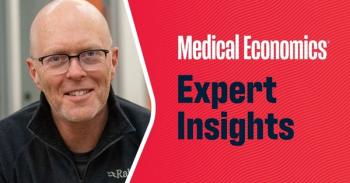
Free webinar to focus on law, ethics of COVID-19 vaccinations
The MJH Life Sciences COVID-19 Coalition will discuss the legal and ethical considerations of COVID-19 vaccinations in a free webinar at 6 p.m. EST, Feb. 24.
The COVID-19 coronavirus pandemic has spurred the pharmaceutical industry and scientific community into a period of unprecedented innovation which resulted in the slate of vaccines and candidates currently coming to the public.
As with any fast-moving medical discovery, there are many legal and ethical implications that remain to be navigated by physicians on the front lines such as whether there is a liability concern in potentially mandating a vaccine only available via EUA? How do physicians navigate the issue of exemptions or privacy concerns?
At 6 p.m. EST on Feb. 24 the MJH Life Sciences COVID-19 Coalition will present a free webinar event looking at some of these issues. The panel of experts will answer these questions and more during the live discussion.
Springing from MJH’s mission to improve quality of life through healthcare communications, education, and research, the MJH Life Sciences COVID-19 Coalition was formed to help keep healthcare professionals up-to-date and informed on the science and latest learnings on COVID-19.
For more information on the MJH Life Sciences™ COVID-19 Coalition, click
The panel for this webinar will be:
- Moderator Amesh Adalja, MD: A senior scholar at the Johns Hopkins University Center for Health Security. His work is focused on emerging infectious disease, pandemic preparedness, and biosecurity. Adalja has served on US government panels tasked with developing guidelines for the treatment of plague, botulism, and anthrax in mass casualty settings and the system of care for infectious disease emergencies, and as an external advisor to the New York City Health and Hospital Emergency Management Highly Infectious Disease training program, as well as on a FEMA working group on nuclear disaster recovery. He is currently a member of the Infectious Diseases Society of America’s (IDSA) Precision Medicine working group and is one of their media spokespersons; he previously served on their public health and diagnostics committees.
- Arthur L. Caplan: The Drs. William F. and Virginia Connolly Mitty Professor of Bioethics Department of Population Health and Founding Head of the Division of Medical Ethics NYU School of Medicine, Caplan was the Sidney D. Caplan Professor of Bioethics at the University of Pennsylvania Perelman School of Medicine in Philadelphia, where he created the Center for Bioethics and the Department of Medical Ethics. Caplan has also taught at the University of Minnesota, where he founded the Center for Biomedical Ethics, the University of Pittsburgh, and Columbia University.He received his PhD from Columbia University. He is the author or editor of 35 books and over 750 papers in peer reviewed journals. His most recent books are “Vaccination Ethics and Policy,” (MIT Press, 2017 with Jason Schwartz) and, “Getting to Good: Research Integrity in Biomedicine,” (Springer, 2018 with Barbara Redman).
- Brendan Parent, JD: Parent is an attorney and assistant professor in the division of medical ethics with joint appointment in surgery at NYU Grossman School of Medicine. He helped write state ventilator allocation guidelines for the NY State Task Force on Life and the Law, which now inform several COVID19 triage policies across the globe. Parent is a member of the Empire State Bioethics Consortium, Bellevue hospital ethics committee, and NYU Langone Health triage ethics committee. He has published academic articles in peer reviewed journals spanning law, medicine, science, sports, and ethics, and his work has been featured in the Washington Post, The NY Times, Chicago Tribune, and on NPR. Parent has advised global companies and nonprofits and published on ethics of immunity and liability waiver for COVID19 infection, return to sport, hospital resource triage, and vaccine distribution and allocation.
Newsletter
Stay informed and empowered with Medical Economics enewsletter, delivering expert insights, financial strategies, practice management tips and technology trends — tailored for today’s physicians.






